- Various factors can impact EV charging times, from battery capacity to the weather.
- It takes longer to charge up a car from 0%, but it also takes longer to charge past 80% on a fast charger.
- Think about factors like battery capacity, regular use, and what sort of charger you’ll be using if you want to get a clearer estimate of time.
Beyond simply trying to find a charging station, current EV owners and future EV buyers also want to know how long it may take to charge up their vehicles. We all know that it takes longer to charge an electric vehicle than it takes to fuel up a gas-powered one. So really, how long does it take to charge an electric car? Let’s go through all of the factors that can impact your EV’s charging time.
Battery Capacity
Sure, it’s great to have an EV battery with huge capacity, like the promised 381 miles on the Faraday Future FF 91 EV. But as battery capacity increases, so does the time it takes to charge up. Even if the charging rate is similar, a 212-kWh battery will still take far longer to fully charge than a 112-kWh battery.
Your Car’s Max Charging Rate
Each vehicle has a maximum charging rate, which is determined by its voltage and electrical current limits.
Hybrids and plug-in hybrids range from 100 V to 200 V, while fully electric vehicles will operate at 400 V to 800 V, or even higher in the more expensive cars.
Why does this matter? It’s related to the chargepoint you’re using.
The Charging Station’s Max Charging Rate
The current you’ll get from a charging station depends on your car’s voltage and current, but also the voltage and current of the charging station itself. When you plug in your EV, the charger will match your battery’s voltage and deliver the current. But that current is limited by either your EV or the charger, whichever has the lower limit.
Maybe your car operates at 400 V, but you’re using an at-home charger that’s limited to 120 V. The current to your battery is limited by your chargepoint, so you won’t get a current that will fully match your car’s voltage, slowing down the charging process.
You’ll obviously get a faster charge at a 240 V chargepoint and even faster speeds at a DC fast charger – generally speaking, anyway.
Current Battery Charge
Typically, EV drivers will rarely let their batteries get down to a 0% charge – instead, they’ll usually just “top up” their batteries. And while charging up from zero can take you longer to charge your EV, so can topping up when your battery is nearing full.
When an EV battery’s state-of-charge (SoC) is below 10% or above 80%, a DC fast charger’s rate slows down. (This explains why EV manufacturers will claim that fast charging can get your battery to 80% charge in so many minutes.) That last 20% of charge might double the time you’re hooked up to that fast charger.
So if you’re a regular “top-up” kind of EV driver, it might be best to just charge at home overnight.
Environmental Factors
Think of the Goldilocks tale: The temperature for your EV battery needs to be just right.
Yes, plenty of EVs have a thermal management system, which can heat or cool your battery to keep it at the optimal temperature. But if it’s really hot or really cold out, your thermal management system will slow down the charging process to make sure your battery isn’t getting too hot too fast.
But Really … How Long Will It Take?
These are all important factors to know that will increase or decrease your charging time. But really, you’re still here asking the big question: How long does it take to charge an electric car?
Thanks to Kelley Blue Book, we have some charging estimates from manufacturers on how quickly a car could charge on a Level 2 charger:
- 2022 Porsche Taycan (Performance Plus): up to 10 hours
- 2022 Tesla Model 3: up to 8 hours
- 2022 Tesla Model S: up to 12 hours
- 2023 Audi Q4 e-Tron: 9 hours
- 2023 BMW iX: under 10 hours
- 2023 Chevrolet Bolt EUV: up to 10 hours
- 2023 Mini SE Hardtop: up to 5 hours
- 2023 Nissan Leaf: 7.5 to 11 hours
- 2023 Polestar 2: 8 hours

SOURCE | IMAGE: DEPT OF TRANSPORTATION, POD-POINT | ED HARVEY
FTC: We use income-earning auto affiliate links. Learn more.


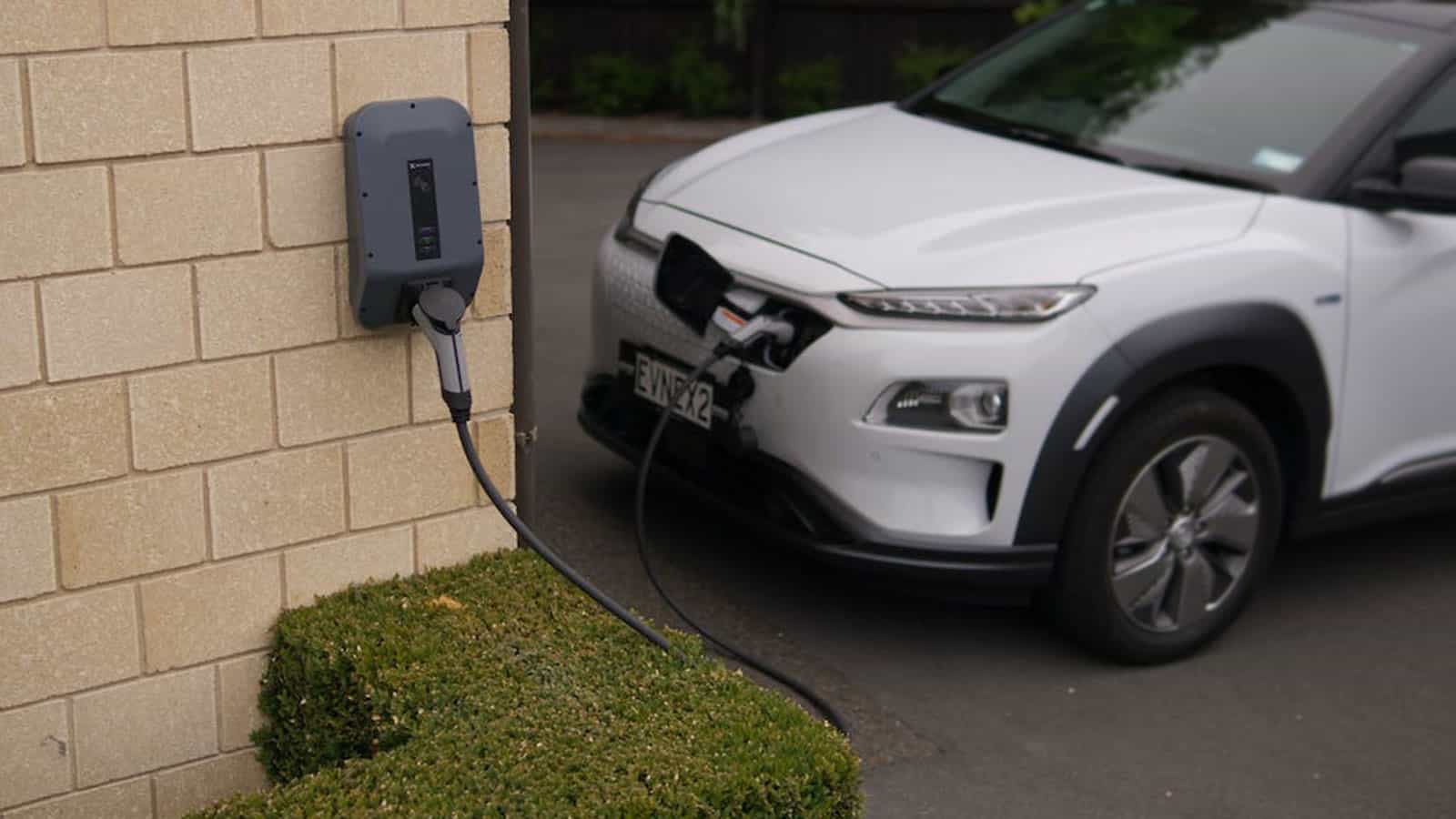


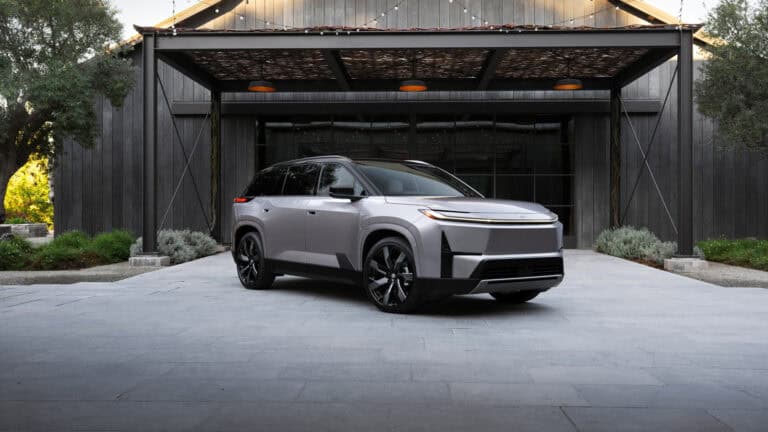

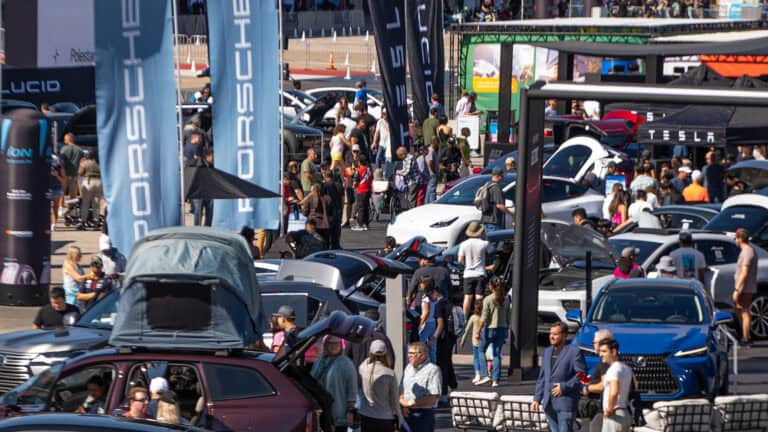
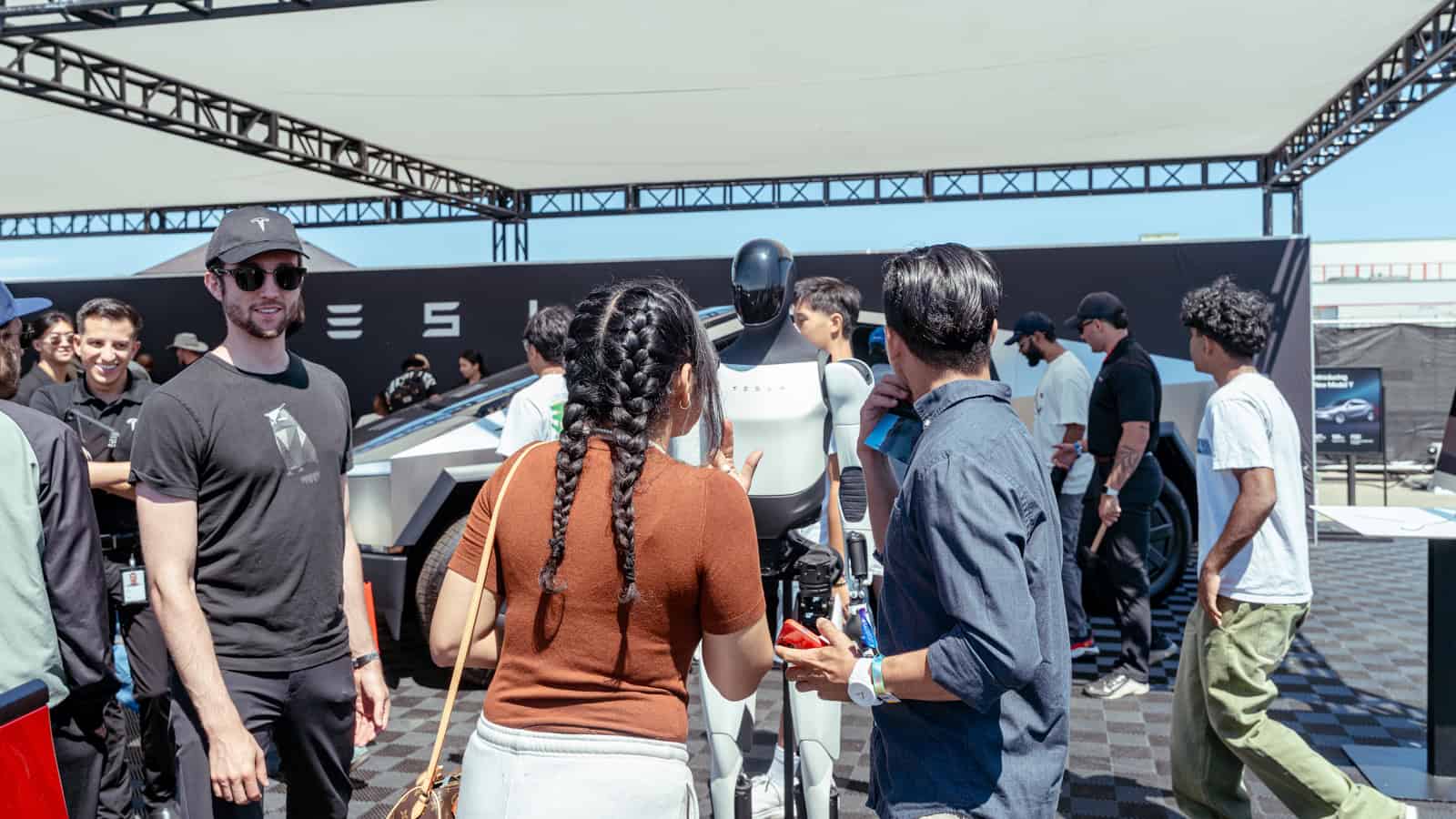
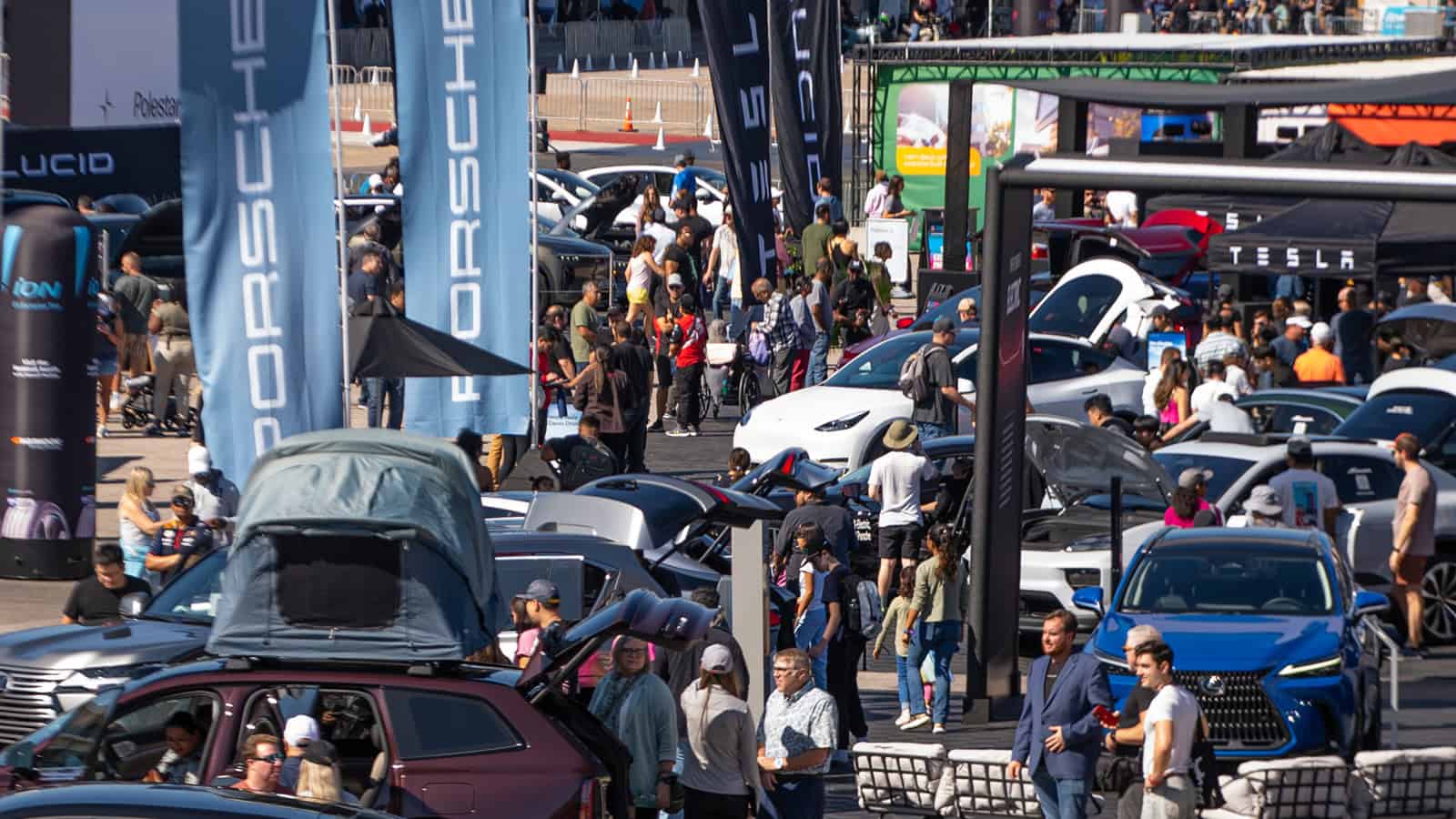
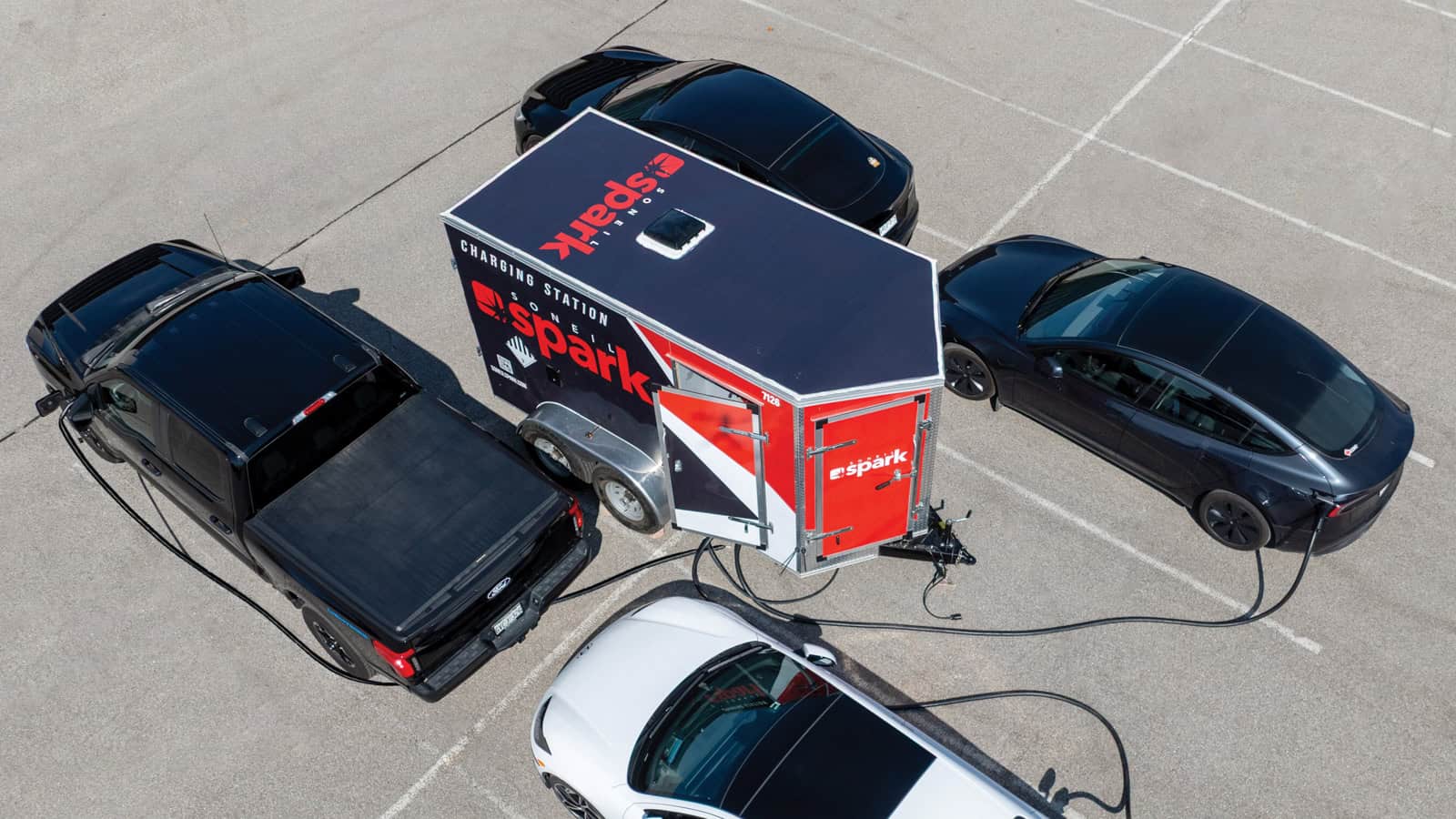

12 Responses
If I ever get an electric vehicle, the REQUIRED ACCEPTANCE SPECIFICATION is it can be refueled as fast as you can refuel a gasoline driven vehicle. Acceptance specification is mandatory for vehicles used on long vacation trips. Ability to use “gas cans” is also required. What make electric vehicles meet this requirement?
None !!
I keep looking for articles stating how long it takes to charge up an EV car, and it’s hard to find. This article above showed 9 EV cars, but not the most common cars purchased. So the question, I take a cross country trip and drive 250, now I have to find a charging post for the next 8 to 12 hours to completely “fill,” my car. As opposed to 5 to 10 minutes to fill up with gas. I agree with Andy above, until they change that, my next car will be gas powered.
Exactly, my thoughts!! My falives 500 miles from me, so most EV cars I have seen trave 381 miles and take 7.5 to 11 hours to charge!! So Biden you can keep your EV. WE’VE driven gasoline vehicles for a kit if years that haven’t done the damage to this country that you have done in less than three so I think I will keep pumping my gas.
I live in the beautiful U.P. of Michigan, The silent running of EV’s… guess what? Deer cant hear you coming, so the body shop business should be booming. BUT we’ve got common sense up here. EV’s aren’t popular 👎
Hydrogen fuel may provide an end run to address our need to achieve a practical alternative. Our current approach is heavily flawed and impractical.The difficulties we are stymied by are not insurmountable.
Amen! The current (pun intended) to use batteries is a distraction. An expensive distraction. 50 years ago, in engineering school it was obvious that h2 is the future.
Electric vehicles are only practical for short trips, and only for the wealthy. What we have here is a “reverse Model T” situation, where vehicles of the future will be meant for the 1%, not the average working man like me.
EV mentality is a joke
The energy and resources to manufacture is staggering. Certainly not echo friendly. Resulting polutants, also staggering, are suppressed to build on a false agenda
Disgusting as usual.
EVs are still in the early phase of development. Right now, they are receiving complaints much like the Model T did. Technology has come a long way since then, and it won’t be long before EVs can travel further on a charge and recharge quickly. When that is achieved, EVs will probably far out sale ICE vehicles.
They finally perfected the combustion engine to last 400 to 500 thousand miles and now they want electric cars. Just another gov scam. I like my gasoline car. Shove your electric car
Wanted to know how many fast charge stations between Washington, DC and Nashville TN . Google responded wit no answer. But just for yuks I presume this 700 mile trip required three 230 mile stops for our four door sedan. 6 hours recharge time each. That’s 10 hours by our gas powered car. An electric equivalent we would have to add 18 hours. Let’s see, 10 hours or 28 hours. One meal every four hours. 3 for gas, 7 for electric. Zero hotels for gas. One at 150 for Electric. Ah…think we’ll stay with gas.